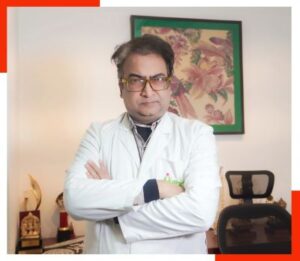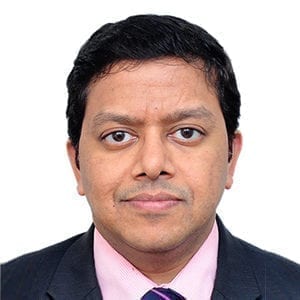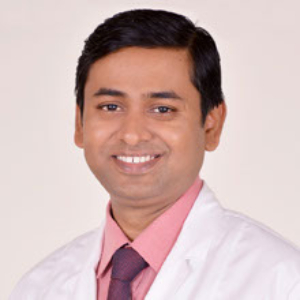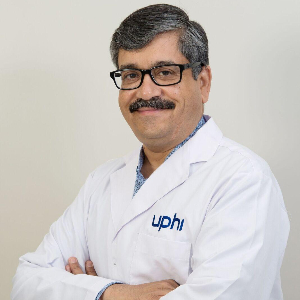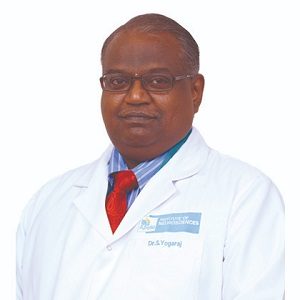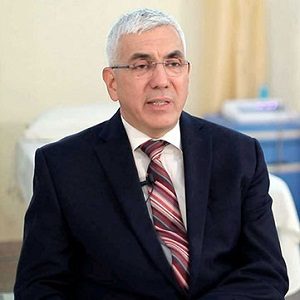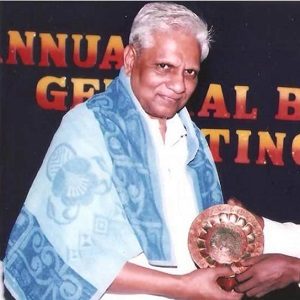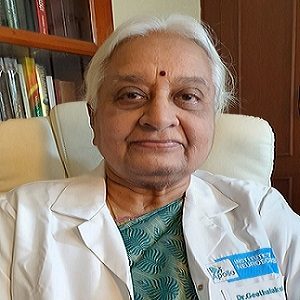Best Doctors in India for Carpal Tunnel Syndrome Treatment
- Neurologist
- Over 20 years' of experience
- Fortis Memorial Research Institute
Profile Highlights:
- Dr. Praveen Gupta is one of India’s top Neurologists, who is currently serving as the Principal Director & Unit Head of Neurology at Fortis Memorial Research Institute, Gurugram.
- Over the course of his 23-years career, Dr. Gupta has made a lasting impact on the field of neurological treatment.
- Among his many firsts, Dr. Gupta founded the first-ever stroke centre in Gurugram and pioneered the use of single-arm mechanical thrombolysis, which completely changed the way strokes are treated in the area.
- He also pioneered Deep Brain Stimulation (DBS) treatments for Epilepsy and Parkinson’s disease, raising the bar for neurological care.
- Top Neurologist | Max Hospital, Saket, New Delhi, India
- 15+ Years Years Experience
- Max Super Specialty Hospital, Saket, New Delhi
Profile Highlights:
- Dr. Puneet Agarwal is one of the renowned neurologists in India known for his outstanding performance in the field of neuroscience.
- He is considered to be one of the first few doctors to successfully complete the Inflammatory Genes study in stroke patients.
- Dr. Agarwal is highly experienced in the Management of Parkinson’s disease, Deep Brain Stimulation, and is currently functioning as the Director of the Neurology Department of Stroke and Dementia at Max Super Speciality Hospital, Saket in New Delhi.
- Top Neurologist | Max Hospital, Saket, New Delhi, India
- 13+ Years Experience
- Max Super Specialty Hospital, Saket, New Delhi
Profile Highlights:
- Dr. Mukesh Kumar is a highly accomplished neurologist currently affiliated with Max Healthcare. He specializes in a range of neurological disorders and has made significant contributions in his field.
- His expertise spans across various areas, including Deep Brain Stimulation, Movement Disorders, Myasthenia Gravis, Parkinson’s Disease, etc.
- Additionally, Dr. Mukesh Kumar holds an impressive academic record. He received his MBBS and MD (Medicine) degree from IMS, BHU, Varanasi, followed by DNB (Medicine) and DM (Neurology) from AIIMS, New Delhi.
- Neurologist, Gurugram, India
- Over 20 years’ experience
- Artemis Hospital, Gurgaon
Profile Highlights:
- Dr. Sumit Singh is a well known Neurologist in India currently associated with Artemis Hospital in Gurgaon as the Chief of the department of Neurology.
- He has an experience of over 20 years and specializes in the treatment and management of headache and movement disorders.
- He is the first Neurologist in India to introduce BT for the treatment of headache in 2002 and also used it for trigeminal neuralgia treatment.
- He has years of knowledge and experience in the treatment of neuromuscular disorders and is one of the best neurologists for the management of patients who have undergone Deep Brain Stimulation surgery.
- Dr. Singh is known to be the best for the planning and management of patients with Parkinson’s disease. He also provides treatment for patients suffering from Multiple sclerosis, Myasthenia gravis and Polymyositis.
- Neurologist, Chennai, India
- Over 25 years’ experience
- Apollo Hospitals Greams Road
Profile Highlights:
- Dr. S. Yogaraj is an experienced Neurologist in India, having over 25 years of experience in the field.
- He specializes in treating emergency neurology conditions like stroke, neuromuscular disorders, CNS infections, Peripheral Nerve issues, etc.
- Dr. Yogaraj is also instrumental in designing, implementing, and reporting electrophysiological training. He trained physicians, neurologists, and paramedical staff.
- Top Neurologist | Apollo Hospital, New Delhi, India
- 26+ Years Experience
- Indraprastha Apollo Hospital, New Delhi
Profile Highlights:
- Dr. Anoop Kohli is one of the well-known Neurologists in India, having 26 years of clinical experience.
- He is interested in the treatment of Migraine, Brain Haemorrhage, Paralysis, Parkinson’s disease, Stroke, Paraplegia, Fits, and Meningitis.
- Dr. Kohli is currently a Senior Consultant Neurologist at Apollo Hospital, New Delhi, and a pioneer, who first devised an intravenous thrombolytic treatment and developed the first Trans-Cranial Doppler Lab of India at Apollo Hospitals, New Delhi.
- Dr. Anoop Kohli is also proficient in research. He has contributed 40 publications to various national and international journals.
- Top Neurologist | Apollo Hospital, New Delhi, India
- 27+ Years Experience
- Indraprastha Apollo Hospital, New Delhi
Profile Highlights:
- Dr. Mukul Varma is one of the best Neurologists in India, specialized in treating brain and spine disorders. With over 27 years of experience, the doctor has expertise in Parkinson’s disease, Speech and movement disorder, headache, and multiple sclerosis treatment.
- He is working as a senior consultant Neurologist with the prestigious Apollo Hospital, New Delhi.
- Dr. Varma is excellent at diagnosing and providing holistic treatment for meningitis, brain stroke, epilepsy, brain cancer, and many others. The doctor also performs stereotactic procedures for Brachial Plexus injuries.
- He has contributed 20 literary works to medical journals of national and international repute.
- Neurologist, Chennai, India
- Over 34 years’ experience
- Apollo Hospitals Greams Road
Profile Highlights:
- Dr. Dhanaraj M is a recognized neurologist in India, currently practicing as a Senior Consultant Neurologist at Apollo Hospital, Greams Road, Chennai.
- He has dedicated 35+ years to managing neuromuscular and neurological disorders and academics. He is proficient in treating conditions such as Alzheimer’s disease, Meningitis, Meniere’s Disease, Brain infections, and Light-headedness.
- As an experienced neurologist, he conducts a range of procedures such as EEG for brain activity monitoring, Nerve Conduction Studies to evaluate nerve function, Lumbar Puncture for cerebrospinal fluid testing, MRI for detailed brain imaging, and EMG to assess muscle health.
- Neurologist, Chennai, India
- Over 34 years’ experience
- Apollo Hospitals Greams Road
Profile Highlights:
- Dr. Geetha Lakshmipathy is a highly regarded neurologist with over 34 years of experience. Her experience stretches across academic, research, clinical, and administrative work.
- She is currently working with Apollo Hospital, Chennai as a Senior Consultant Neurologist following her retirement from Madras Medical College and Government General Hospital.
- Dr. Lakshmipathy specializes in treating a wide range of neurological conditions, including Neurological Dysfunction, Neuromuscular Disorders, Brain Aneurysm Surgery, and VP Shunt placement.
- Neurologist, Chennai, India
- Over 30 years’ experience
- Apollo Hospitals Greams Road
Profile Highlights:
- Dr. Rajendran S is a highly respected neurologist at Apollo Hospitals, Greams Road in Chennai, with over three decades of experience.
- Dr. Rajendran is known for his personalized treatment plans tailored to each patient’s needs, utilizing specialized diagnostic tools like polysomnography.
- Specializing in Alzheimer’s disease, migraine, epilepsy, BT treatments for movement and headache disorders, and employing advanced electrophysiology techniques, he is sought after for his expertise.
- Dr. Rajendran holds specialized training as a neuropsychiatrist from the United Kingdom and is a distinguished member of the Royal College of Physicians of Ireland.
Best Hospitals in India for Carpal Tunnel Syndrome Treatment
- City: Gurugram, India
Hospital Highlights:
- One of India’s best and largest multi-specialty hospitals, Medanta was built with the aim to bring India to the highest standards of medical care. The hospital has been providing the best medical services to its patients, since its inception, with care, commitment, and compassion.
- Equipped with 1250 beds, the hospital was founded by Dr. Naresh Trehan in the year 2009 with an aim to provide the best medical care at affordable costs. The hospital is spread across 43 acres and includes 45 operation theatres and 350 beds dedicated solely to ICU. The hospital includes over 800 doctors, and more than 22 specialty departments and has a dedicated floor for individual specialty in order to offer the best services under one roof.
- The hospital is considered one of the premier institutes in India for Cardiac Care and includes staffs and members of high caliber. The hospital has 6 distinct centers of excellence.
- City: Gurugram, India
Hospital Highlights:
- Artemis Hospital, established in 2007 in Gurugram, India, is a leading multi-specialty institution known for its excellence in patient care and advanced medical technology, offering comprehensive services across specialties like Cardiology, Oncology, Neurology, Orthopedics etc.
- Renowned for its patient-focused care, Artemis Hospital combines state-of-the-art infrastructure with a team of internationally trained doctors and surgeons, ensuring the highest standards of medical treatment.
- Accredited by JCI and NABH, Artemis Hospital meets global healthcare quality and safety standards, reflecting its commitment to providing compassionate, personalized care.
- The hospital is recognized for utilizing cutting-edge diagnostic and ther*peutic techniques, ensuring patients receive accurate diagnoses and effective treatments tailored to their needs.
- City: Chennai, India
Hospital Highlights:
- The Apollo Proton Cancer Centre in Chennai is the most sought-after private cancer hospital in India. It is an integrated facility that provides cutting-edge, all inclusive cancer treatment to patients all over the globe.
- The hospital is a part of the renowned Apollo Group which has a large network of over 74 hospitals in India and across the globe. Out of the 74 hospitals, 21 of them are cancer centres. However, Apollo Proton Cancer Centre is the only cancer hospital to have JCI accreditation.
- The Centre, which was established on the principles of excellence and expertise, unites a formidable medical staff led by some of the most illustrious figures in cancer treatment.
- The hospital follows the global ASTRO Model Policy. It is the same global policy which is followed by countries like USA, UK, and Europe.
- Apollo Proton Cancer Centre is among the very few hospitals in India to receive patients from First World countries such as USA, Canada, New Zealand, Australia, Singapore, Thailand, etc.
- Apart from that, it is also the first hospital in Chennai to receive patients from several countries like Uzbekistan, Kazakhstan, Turkmenistan, Georgia, Armenia, Azerbaijan, SAARC countries (Bangladesh, Nepal, Sri Lanka, Maldives, Bhutan, Afghanistan, and Pakistan), South Africa, Turkey, Egypt, etc.
- In fact, there is a dedicated team at the Apollo Proton Cancer Centre that serves only international patients. Thus, on a monthly basis, the Centre receives patients from across 32 countries.
- Moreover, there are certain treatments in Apollo Proton Cancer Centre that are not available in any other centre. APCC addresses all types of possible cancers that are usually not covered by any other centre.
- City: New Delhi, India
Hospital Highlights:
- Over the last 33 years, the Fortis Escorts Heart Institute has set new standards in cardiac treatment with groundbreaking research. It is now known around the world as a centre of expertise for Cardiac Bypass Surgery, Interventional Cardiology, Non-invasive Cardiology, Paediatric Cardiology, and Paediatric Cardiac Surgery.
- The hospital has cutting-edge laboratories that perform a wide range of diagnostic tests in Nuclear Medicine, Radiology, Biochemistry, Haematology, Transfusion Medicine, and Microbiology.
- Fortis Escorts Heart Institute boasts a diverse group of bright and experienced doctors who are backed up by a team of highly qualified, experienced, and devoted support professionals as well as cutting-edge equipment such as the recently installed Dual CT Scan.
- Approximately 200 cardiac doctors and 1600 personnel currently collaborate to manage over 14,500 admissions and 7,200 emergency situations each year. The hospital now has a 310-bed infrastructure, as well as five cath labs and a slew of other world-class amenities.
- City: Gurugram, India
Hospital Highlights:
- Fortis Memorial Research Institute (FMRI) is a premier multi-super-specialty, quaternary care hospital, known for its exceptional international faculty, top-tier clinicians, super-sub-specialists, and specialized nurses, all supported by cutting-edge technology.
- It is the flaship hospital of Fortis Healthcare Limited, part of IHH Healthcare Berhad, a leading integrated healthcare services provider in India. As one of the country’s largest healthcare organizations, Fortis operates 28 healthcare facilities with over 4,500 operational beds (including O&M facilities) and more than 400 diagnostic centers (including joint ventures).
- Recognized as one of the top hospitals in India, FMRI serves as a leading referral center and aspires to be the ‘Mecca of Healthcare’ for India and beyond. Its 11-acre campus is a testament to its commitment to providing world-class healthcare.
- Accredited by JCI and NABH, FMRI is dedicated to maintaining the highest standards of healthcare quality and safety, ensuring that every patient receives the best possible care. The hospital’s reputation is further enhanced by its state-of-the-art facilities and innovative medical practices.
- City: New Delhi, India
Hospital Highlights:
- The Indian Spinal Injuries Center (ISIC), provides state-of-the-art facilities for the management of all types of spinal ailments.
- Staffed with internationally trained, acclaimed, and dedicated spine surgeons, the hospital provides cutting-edge medical & surgical technology. The hospital provides comprehensive management of spinal injury, back pain, spinal deformities, tumors, osteoporosis, etc.
- The hospital performs motion-preserving spine surgeries including disc replacement and dynamic fixation, and minimally invasive spine surgeries such as endoscopic disc excision.
- The orthopedic service of the hospital covers all orthopedic ailments including trauma, joint diseases & replacements, oncology, pediatric orthopedics & upper limb ailment.
- City: Faridabad
Hospital Highlights:
In the sprawling city of Faridabad, where healthcare needs are diverse and ever-evolving, one institution has consistently stood out as a beacon of excellence in the field of medicine—Marengo Asia Hospital. Established with a vision to provide world-class healthcare services to the community it serves, Marengo Asia Hospital has emerged as a trusted name synonymous with quality, compassion, and innovation in healthcare.
- City: New Delhi, India
Hospital Highlights:
- Indraprastha Apollo Hospital is a 700-bedded multispecialty hospital in the heart of the capital of India. It is a part of Apollo Hospital group, one of India’s most reputed healthcare chains. Indraprastha Apollo Hospital has been accredited by Joint Commission International, making it the first internationally accredited hospital in the country in 2005.
- There are 52 specialties in the hospital with one of the best cardiology centers in the country. The hospital is also equipped with State of the art infrastructure facilities with the largest Sleep Lab in Asia and the largest number of ICU bed facilities in India.
- The latest and highly advanced technologies that are installed in the hospital include Da Vinci Robotic Surgery System, PET-MR, PET-CT, Cobalt-based HDR, Brain Lab Navigation System, Tilting MRI, Portable CT scanner, 3 Tesla MRI, 128 Slice CT scanner, DSA Lab, Endosonography, Hyperbaric Chamber and Fibro scan.
- City: New Delhi, India
Hospital Highlights:
- One of the well-regarded providers in India committed to the highest standards of clinical excellence and patient care, Max Super Specialty Hospital is a part of Max Healthcare, which is the second-largest healthcare chain in India. Regarded as one of the most well-regarded healthcare providers in the country, Max Super Specialty Hospital is committed to the highest standards of clinical excellence as well as patient care. The hospital is also equipped with the latest technology as well as cutting-edge research. The hospital is known to deliver and ensure the highest level of patient care.
- The hospital has more than 500 beds and offers treatment for over 35 specialties. The hospital also holds the credit of having installed the first Brain Suite in Asia. This is a highly advanced Neurosurgical machine that allows MRI to be taken while surgery is ongoing.
- Other advanced and latest technologies are also installed in the hospital such as the 1.5 Tesla MRI machine, 64 Slice CT Angiography, 4D ECHO, LINAC, and 3.5T MRI machine.
- City: Kolkata, India
Hospital Highlights:
- Founded in 2017, the HCG EKO Cancer Centre is a committed, all-inclusive cancer care facility in Kolkata.
- The hospital was collaboratively established by India’s leading cancer care provider HCG (HealthCare Global Enterprises Ltd.), and EKO Diagnostic Pvt. Ltd., a top diagnostic and imaging chain in Eastern India.
- With 88 beds, the hospital provides a full spectrum of services including diagnosis, prevention, screening, second opinions, treatment, rehabilitation, follow-up, and palliative care.
- Additionally, the hospital contains a day-care chemotherapy ward, Neutropenic ward, medical ICU, pharmacy, blood bank, and an IPD wing.
- At HCG EKO Cancer Centre Kolkata, a large team of cancer experts with experience in medical oncology, surgical oncology, radiation oncology, hemato oncology, BMT, and nuclear medicine collaborate to offer a variety of treatment options under one roof.
- Furthermore, the hospital is also known for employing the most advanced radiation technology such as, the Radixact, a next-generation TomoTherapy equipment that provides greater radiation delivery precision.
Carpal Tunnel Syndrome
Carpal tunnel syndrome also known as median nerve compression, is a condition which can lead to numbness, tingling or weakness in your hand. It occurs due to a pressure on your median nerve, which runs the length of your arm and goes through a passage in your wrist which is known as the carpal tunnel, ending in your hand. The median nerve controls the movement as well as the feeling of your thumb and movement of all the fingers excluding the little finger.
The anatomy of your wrist, health problems and possibly repetitive hand motions, can contribute to this condition. With proper treatment, one can get rid of the tingling and numbness, as well as restore the proper function of their hand.
Symptoms
Symptoms of carpal tunnel syndrome may include:
- Burning, tingling, itching, numbness in your palm as well as the thumb of your index and middle fingers.
- Shock-like feelings which move into your fingers
- Weakness in your hand making it difficult to hold objects
- Tingling sensation which moves up into your arm
There are several other signs you may notice, such as your fingers ‘falling asleep’ and becoming numb at night. It happens as a result of how you hold your hand while you are sleeping.
In the morning, you might be waking up with numbness as well as tingling in your hands running all the way to your shoulder. During the day, your symptoms may flare up while you are holding an object with the wrist bent, when you may be driving or reading a book.
Initially, you might feel better after you shake your hands, but eventually after some time, it might not make the numbness go away. As this syndrome gets worse, you might have less strength in your grip as well, since it causes the muscles in your arm to shrink. You’ll be experiencing more pain as well as muscle cramping.
Due to the irritation or pressure around it, your median nerve is unable to work the way it should. This might lead you to slower nerve impulses, less feeling in your fingers, less strength as well as coordination, especially to the ability to use your thumb.
Causes and risk factors
Pressure on the median nerve leads to carpal tunnel syndrome. The median nerve runs from your forearm through a passageway in your wrist to your hand. It provides sensation to the palm side of your fingers and thumb, except the little finger. It also provides the nerve signal for moving the muscles around the base of the thumb.
Anything which squeezes or irritates the median nerve in the carpal tunnel space might lead to carpal tunnel syndrome. A wrist fracture can narrow the carpal tunnel and cause irritation in the nerve, as the swelling and inflammation caused by rheumatoid arthritis.
Mostly, carpal tunnel syndrome has more than a single cause. A combination of risk factors can contribute and lead one to develop this condition.
Several factors exist which are associated with carpal tunnel syndrome and though all of them might not be the direct cause, they can increase the risk of damage to the median nerve.
- Anatomic factors: A wrist fracture or dislocation or arthritis which deforms the wrist’s small bones, may alter the space within the carpal tunnel and put pressure on the median nerve.
- Sex: In women, carpal tunnel syndrome is usually more common. This could be because the carpal tunnel area is relatively smaller in women, as compared to men. Women having carpal tunnel syndrome might also have smaller carpal tunnels, compared to those women who don’t.
- Nerve-damaging conditions: Chronic ailments such as diabetes can increase the risk of nerve damage, including damage to one’s median nerve.
- Inflammatory conditions: Rheumatoid arthritis as well as other conditions having an inflammatory component can affect the lining around the tendons in your wrist, as well as put pressure on the median nerve.
- Obesity: Being obese or overweight also increases the risk of developing carpal tunnel syndrome.
- Medications: According to some studies, there is a link between carpal tunnel syndrome and the use of a drug named anastrozole, which is used for treating breast cancer.
- Body fluid changes: Fluid retention might increase the pressure within your carpal tunnel, which can irritate the median nerve. This is quite common during pregnancy and also during menopause. If your carpal tunnel syndrome is associated with pregnancy, there is a chance that it will get better on its own after the pregnancy.
- Other medical conditions: Menopause, thyroid disorders, lymphedema, kidney failure and certain medical conditions can increase the chances of carpal tunnel syndrome.
- Workplace factors: If you are working with vibrating tools, or on an assembly line, it can require prolonged or repetitive flexing of your wrist. This may create pressure on the median nerve, which can be harmful and may worsen existing nerve damage.
However, these risk factors haven’t yet been established scientifically as direct causes of carpal tunnel syndrome.
Many studies have also evaluated whether there is an association between the prolonged usage of computer and carpal tunnel syndrome. Some evidence suggests that using the mouse for a longer period can lead to problems. However, there hasn’t been enough consistent and reliable evidence to support extensive computer use as a risk factor for carpal tunnel syndrome, although it might cause a different kind of hand pain.
Diagnosis
To determine whether you are having carpal tunnel syndrome, your doctor might be asking you to one or more of the following tests.
History of symptoms
Your doctor will need to review the pattern of your symptoms. Sometimes when the median nerve doesn’t provide sensation to your little finger, symptoms in that finger might indicate a problem other than carpal tunnel syndrome. Symptoms of carpal tunnel syndrome usually occur while holding a newspaper of phone or gripping the steering wheel. They tend to occur at night as well and might sometimes wake you up during your sleep. You may also sometimes notice the numbness in the morning, after waking up.
X ray
An X-ray of the affected wrist is also sometimes recommended, to exclude other causes of wrist pain such as fracture or arthritis.
Physical examination
Your doctor will be conducting a physical examination, where he will test the feeling in your fingers as well as the strength of the muscles in your hand. In many people, symptoms can be triggered by tapping on the nerve, bending the wrist or simply pressing on the nerve.
Electromyography
Electromyography is used for measuring the tiny electrical discharges which are produced in muscles. Your doctor will be inserting a thin needle electrode into specific muscles to evaluate the electrical activity when muscles contract and rest. This test can help in identifying damage to the muscles which are controlled by the median nerve. It also helps in ruling out other conditions.
Nerve conduction study
Nerve conduction study is a variation of electromyography, where two electrodes are taped to your skin. A small shock is passed through the median nerve in order to see if electrical impulses are slowed in the carpal tunnel. This test can help diagnose your condition, as well as in ruling out other conditions.
Treatment options for carpal tunnel syndrome
Carpal tunnel syndrome should be treated as soon as possible once you start seeing the symptoms. When the illness in the early stages, it might go away after you perform some simple activities.
- Take breaks more frequently to rest your hands
- Avoid any kind of activity which can worsen your symptoms
- Apply cold packs that will help in reducing the swelling
There are other treatment options as well, which include splinting, medications as well as surgery. Splinting and other conservative treatments are likely to help you if your symptoms are mild and moderate and they come and go for less than ten months. You will need to see a doctor if you are having numbness in your hands.
Nonsurgical therapy
If the condition is diagnosed early, you can go for nonsurgical methods such as:
Wrist splinting
Nonsteroidal anti-inflammatory drugs (NSAIDS)
Corticosteroids
Your doctor might inject your carpal tunnel with a corticosteroid such as cortisone to help in relieving the pain. Your doctor might also sometimes use an ultrasound to guide these injections. Corticosteroids can help in decreasing inflammation as well as swelling, which relieve pressure on the median nerve. Oral corticosteroid, however, are not considered to be as effective as corticosteroid injections for treating carpal tunnel syndrome.
If rheumatoid arthritis or other such inflammatory arthritis is the cause of your carpal tunnel syndrome, then treating your arthritis can help in reducing the symptoms of carpal tunnel syndrome. However, this is yet to be proven.
Surgery
Surgery might be appropriate if your symptoms are severe and/or not responding to other kinds of treatment.
Carpal tunnel surgery is performed to relieve pressure by cutting the ligament pressure on the median nerve.
The surgery might be performed with two different techniques:
Endoscopic surgery
During endoscopic surgery, your surgeon uses a device resembling a telescope, with a small camera attached to it, to see the inside your carpal tunnel. The surgeon will next cut the ligament through one or two small incisions in your hand or wrist. Some surgeons might also use ultrasound instead of a telescope for guiding the tool which cuts the ligament.
Endoscopic surgery usually results in less pain compared to open surgery in the first few days or weeks after surgery.
Open surgery
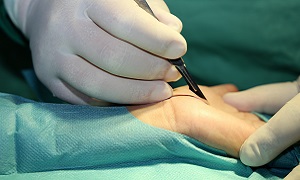
During open surgery, your surgeon makes an incision in the palm of your hand as well as over the carpal tunnel and cuts through the ligament for freeing the nerve. It is best that you discuss the benefits and risks of each technique with your surgeon before the surgery is performed.
Risks
It is also important to note that the surgery possesses a few risks which include:
- Incomplete release of the ligament
- Scar formation
- Wound infections
- Injuries to your nerves or blood vessels
During the healing process after your surgery, the ligament tissues will gradually grow back together and allow more room for the nerve. Usually, this internal process takes several months, but the skin will heal in just a few weeks.
Once the ligament has healed, your doctor might gradually encourage you to use your hand and you can gradually return to using your hand normally like before. If your symptoms were severe, they might not go away completely after the surgery.
You should also keep in mind to avoid forceful hand motions or extreme wrist positions.

